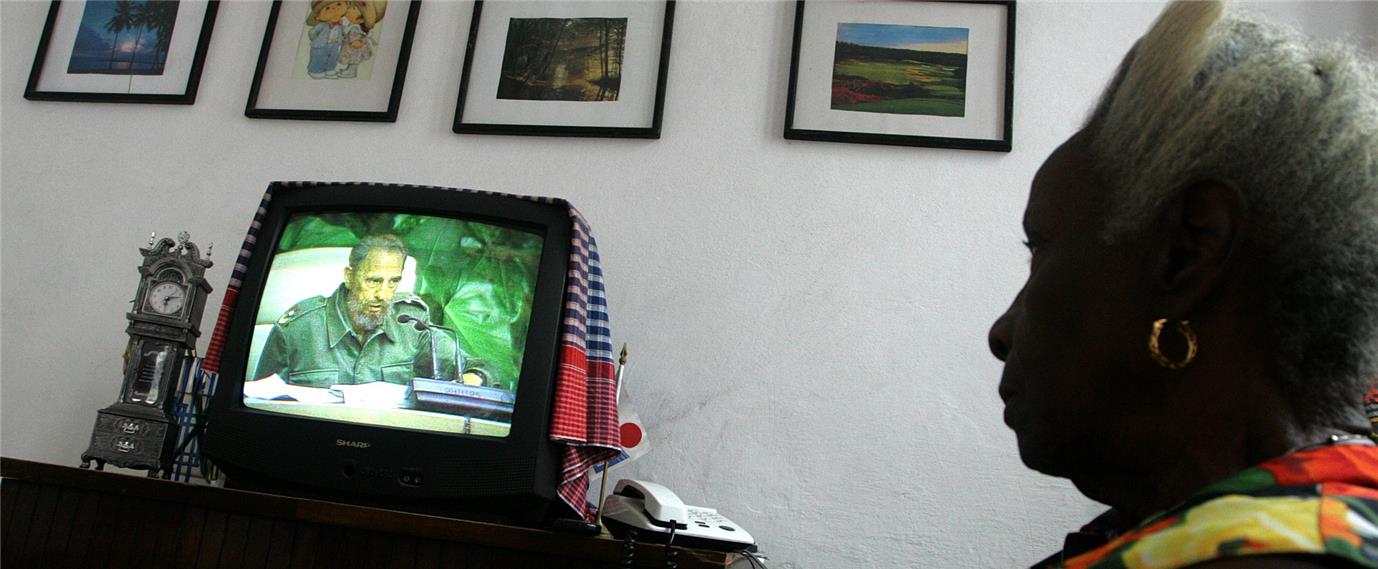في مكتبة صغيرة في زاوية غرفة الأخبار، وُضع على الرف شريط عن سيرة حياة الرئيس المصري الأسبق حسني مبارك للبث في حالة وفاته مباشرة. ولكن لماذا تعدّ قناة الجزيرة تقريرا عن وفاة شخص عام 2004 وهو لا يزال على قيد الحياة؟ هل هي عادة الصحافة في التشاؤم والانكفاء على أخبار الموت وترقّبها؟ بالطبع لا، فقد درجت العادة في غرف الأخبار على التحضير والاستعداد للأحداث المهمة، دون تركها فريسة للتخبط والارتجال سيما وأن بعض الأحداث يمكن التنبؤ بها والاستعداد لها. ففي عام 2004، اعتلّت صحة الرئيس المصري الأسبق حسني مبارك في بلد أنهكه الفساد والقمع، وتراجعت أهمّيته السياسية في المنطقة. وهو ذات العام الذي تأسست فيه حركة "كفاية" ضد استمرار الرئيس المصري في السلطة، وتوريث نجله جمال مبارك سنوات الحكم والاستبداد. في هكذا مشهد متوتّر سيكون خبر وفاة الرئيس له ما بعده. ولأن "الخبر العاجل" عمره قصير، فإن ما يميز أيّ تغطية صحفية عن أخرى هو القدرة على تقديم الصورة الكاملة. وقد انطبق هذا السيناريو على زعماء وشخصيّات مشهورة أخرى مثل حافظ الأسد وصدام حسين وآخرين، كانت فرق الإعداد في قناة الجزيرة متأهّبة للتعامل مع خبر وفاتها أو اغتيالها في أيّ وقت من خلال إعداد مسودات تقارير عن سير حياتهم تكون شبه جاهزة للبثّ حرصا على تقديم صورة متكاملة للحدث، خاصة حين يتعلّق الأمر بشخصيّات أثارت الجدل ولا تزال من الزعماء والساسة في العالم العربي وحول العالم.
غرف الأخبار حول العالم تشهد ضغطا متزايدا. فلم يعد من الممكن اليوم الحديث عن "الخبر العاجل"، فكل الأخبار باتت عاجلة وسريعة، وهذا الشريط الأحمر الذي يظهر على الشّاشات أمام المشاهدين لم يعد يعني الكثير كما كان الحال في الماضي. ولذا صار التحدّي اليوم بنشر الأخبار "البطيئة" بطريقة أكثر جذبا وتأثيرا بالمشاهدين. وعندما يتعلّق الأمر مثلا بخبر وفاة شخص مثل حسني مبارك أو عبد العزيز بوتفليقة (وكلاهما مريضٌ وتدور تكهّنات بين الفينة والأخرى عن حالتهما الصحيّة) فإن النجاح في تغطية هذا الخبر سيكون من خلال قوة وجاذبية المواد التي تعدّها القناة إبّان الحدث نفسه، وهذا يتطلّب بطبيعة الحال استعدادا مسبقا وبحثا جادًّا لتجنّب الوقوع في الارتباك والتخبّط لحظة وقوع الحدث، والذي يؤدّي غالبا إلى الوقوع في العديد من الأخطاء.
حين توفّي نيلسون مانديلا بعد صراع مع المرض في 5 ديسمبر/كانون أول 2013، كان لدى الجزيرة ملفّ متكامل عن الزعيم الراحل مكّنها من توفير ملفّ تفاعليّ متميّز على موقعها الإلكتروني بالإضافة إلى الموادّ الأخرى التي عرضتها عن مسيرة مانديلا والمراحل الأساسيّة في نضاله ضدّ نظام الفصل العنصريّ في بلده. وربما كان استعداد الجزيرة حينها لتغطية هذا الحدث أكبر من استعداد معظم القنوات في جنوب أفريقيا، وإن كان هذا الأمر يعود لأسباب ثقافيّة إلى حدّ كبير. فقد كان النّاس في جنوب أفريقيا يجدون حرجا كبيرا في الحديث عن وفاة زعيمهم مانديلا، وكان الأمر أشبه بتابوه يمنع الحديث عنه، عداك عن الاستعداد له وكأنّه أمر واقعٌ أو مأمول. أمّا القنوات العالميّة الكبرى مثل الجزيرة وسي أن أن وغيرها، فقد كانت لديها خططٌ واضحة عمّا كانت ستقدّمه للجمهور لحظة الإعلان عن وفاة هذا الزعيم.
أمّا الزعيم الكوبيّ الراحل فيدل كاسترو، فيبدو أنّ جميع الموادّ التي أعدت وكتبت بشأن وفاته أو اغتياله منذ عقود تشهد على الأهمّية الكبيرة التي يتمتّع بها، سواء عند محبّيه أو مبغضيه. وهذا ما جعل غرف الأخبار تتأنّى دوما في التعامل مع أيّ خبر يتعلّق بوفاته، فقد حدث وأن نُشرت بعض التقارير الخاطئة عبر السنوات الماضية عن وفاته. وربّما كانت هذه الإشاعات أو التقارير هي التي دفعت العديد من القنوات والصحف لتكون على استعداد لتغطية خبر وفاة كاسترو بالشكل اللائق. ففي صحيفة ميامي هيرالد مثلا يقول مدير التحرير ريك هيرش (1): "تجاوز عمر المسوّدات التي كتبناها عن وفاة كاسترو أعمار بعض العاملين الذين غطّوا خبر وفاته".
أما في النيويورك تايمز، فكانت المسودة الأولى التي كُتبت ترقُّبا لوفاة كاسترو (أو مقتله بالأحرى) قد أعدّت منذ العام 1959، وتناوب العديد من المحرّرين على تعديلها والإضافة إليها على مدار عشرات السنوات. تقول سوزان شيرا (2)، وهي مراسلة ومحرّرة أولى في النيويورك تايمز، وكانت قد شغلت منصب محرّر الشؤون الخارجيّة ما بين عامي 2004 و2011 في الصحيفة:
"أذكر أنّنا هرعنا إلى غرفة الأخبار في أوقات متأخرة بعد منتصف الليل أو عطلة نهاية الأسبوع كلّما سمعنا إشاعة عن وفاة كاسترو، كي نعيد قراءة وتحرير نعيه ونرتّب الصفحات التي تتحدّث عنه ونتأكّد من جاهزيّة خطط تغطية خبر وفاته، وكنا نكتشف في كل مرة أن الخبر غير صحيح.. أما هذه المرّة فقد كان الخبر حقيقيًّا، وقد استفدنا كثيرا من هذه السنوات الطويلة التي قضيناها نحضّر لتغطية هذا الخبر".
ومع تراجع إغراء الأخبار العاجلة وظهور التطوّرات التقنية والرقمية التي تتقاطع اليوم مع عرض القصص الإخباريّة على شاشة التلفاز أو الهاتف أو على شبكات التواصل الاجتماعي، وتفضيل الجمهور المتزايد للمواد التفاعلية والبصرية في سرد القصص والأخبار، فإنّ التحضير لتغطية بعض الأخبار الكبيرة والحسّاسة قد بات أكثر أهمية من مجرد الاكتفاء بالسبق إليها.
هوامش
(2) https://www.nytimes.com/interactive/2016/11/29/insider/fidel-castros-obituary.html?_r=1








































